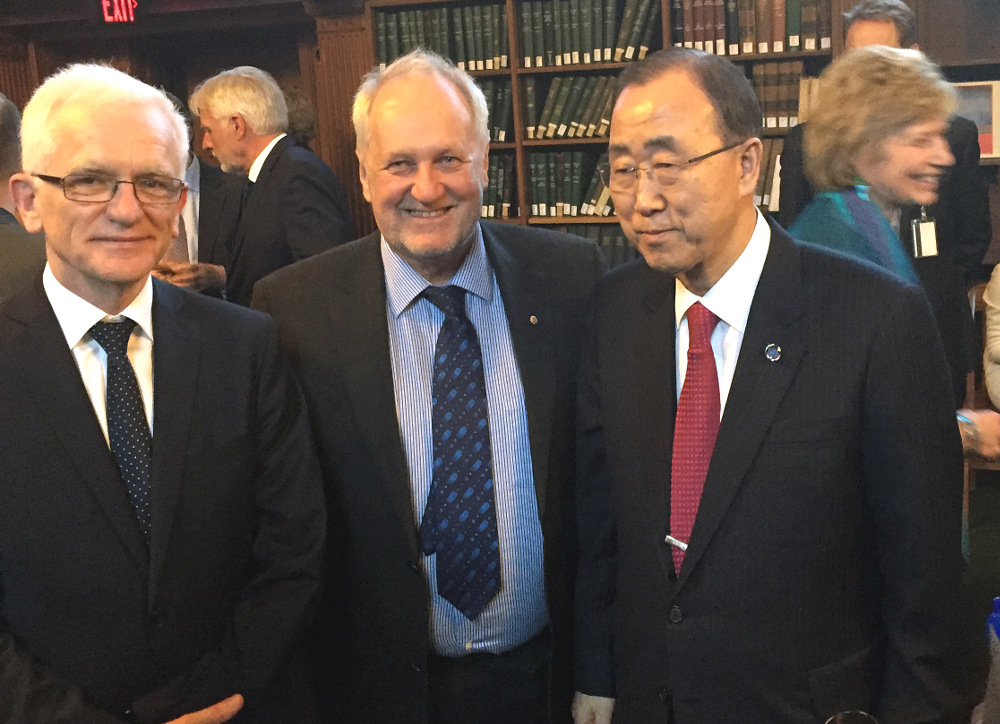PAS representatives took part in UN Global Colloquium of University Presidents on the preservation of cultural heritage
On April 11–14, Prof. Jerzy Duszyński, President of the Polish Academy of Sciences, participated in the eighth Global Colloquium of University Presidents at the invitation of Prof. Peter Salovey, President of Yale University. The colloquium on the theme “Preservation of Cultural Heritage: Challenges and Strategies” under the auspices of the United Nations was held in New Haven, Connecticut. Prof. Duszyński was accompanied by Prof. Roman Kozłowski, Haber Institute of Catalysis and Surface Chemistry (PAS).

From left: Prof. Roman Kozłowski, Haber Institute of Catalysis and Surface Chemistry (Polish Academy of Sciences); Prof. Jerzy Duszyński, President of the Polish Academy of Sciences; Ban Ki-moon, Secretary-General of the United Nations. Yale 2016.
The colloquium participants included 30 presidents, rectors, and chancellors of scientific institutions all over the world (among them Princeton University, Brown University, University College London, Uppsala Universitet, Smithsonian Institution, Sorbonne – Universités – Muséum national d’histoire naturelle, University of Ghana, Shandong University, Oxford University, and Boğaziçi University) and specialists in cultural heritage, who took part in expert sessions. Several lectures were given during the colloquium, including speeches by Irina Bokova, Director-General of UNESCO, and Ban Ki-moon, Secretary-General of the United Nations.
The representatives of universities and research institutions gathered at Yale all agreed that research in cultural heritage preservation is a new, rapidly developing discipline bringing together humanities, natural sciences, and engineering. They created a network in order to compile the state-of-the-art literature on the topic, support long-term research into sustainable conservation of heritage and guarantee effective transfer of knowledge into preservation practice and corresponding policies (read more at http://ungc.yale.edu). The Polish Academy of Sciences will aid those endeavors, using its unique potential for the benefit of the preservation and reasonable management of cultural heritage resources in both social and economic contexts.
